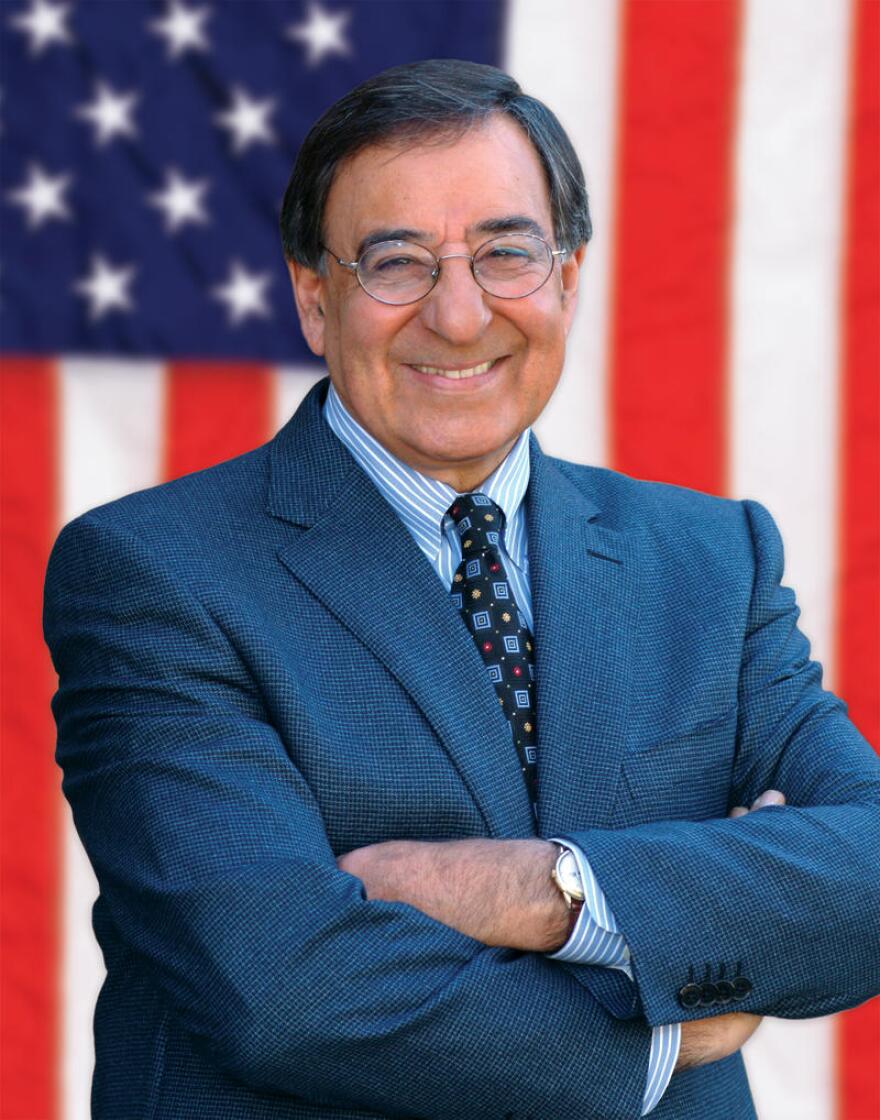As of Monday morning, more than 4,000 people in the U.S. have tested positive for COVID-19, including nearly 500 in California, according to Johns Hopkins University. KAZU News recently spoke with former Secretary of Defense Leon Panetta, who’s lived most of his life in Carmel Valley, about the coronavirus outbreak.
Panetta also served as the Director of the CIA and White House Chief of Staff. Here are some highlights from that conversation, which took place at the Panetta Institute for Public Policy in Seaside.
Erika Mahoney (EM): The President declared a “national emergency” on Friday, which he said opens access to about $50 billion to combat coronavirus. What are your thoughts on that action?
Leon Panetta (LP): It's a little late. Frankly, it should have been the centerpiece of his speech to the nation from the Oval Office. But I do think that a national emergency declaration is required.
EM: The President has brought together a public, private partnership to work on methods of testing and other aspects of the response to the spread of this virus. Has this been done before?
LP: Well, normally, past presidents have always tried to build a partnership with the private sector when you're confronting this kind of crisis. This is particularly appropriate because this administration has not done a very good job of providing testing kits. And these, you know, the Walgreens and others by virtue of being able to provide, you know, drive-in kind of testing operations that can operate more quickly. I think that'll help.
South Korea tests almost 10,000 people a day. We're not even close. And so we ought to be able to provide those testing kits. More importantly, you know, my concern is that we don't have a baseline right now as to, you know, how many people are getting this virus? How many people on a daily basis are being impacted? We need a baseline. The only way to determine that baseline is through testing.
EM: Around the U.S. and locally, schools are closing, rec centers… events, concerts being canceled. Your second Panetta Lecture series of the season has been postponed. What sorts of considerations went into making that decision?
LP: My wife and I were particularly concerned about the growing numbers that we were seeing and the fact that ultimately it has to be contained. And the only way you can contain it is by limiting human contact. It's the right thing to do. It's difficult. Obviously, canceling these events has a huge impact in terms of the community. Canceling events impacts on jobs, impacts on our economy. This is clearly a major crisis that we're confronting. But we have to respond. We have to do our duty. We have to do our part. And I think if everybody does that, regardless of sometimes the ambivalent leadership coming from Washington, I think this country can ultimately confront the crisis that we're facing.
EM: How do you think the virus will affect the democratic primary and potentially the general election?
LP: Well, immediately it's going to have a hell of a reaction because you can't have campaign events, you can't bring people together. And so I think there's going to be a period of time here where politics is going to have to take a backstage. You know, the hope is that once we get to the summer and hopefully this thing will be better controlled, that the country can again focus on the presidential election in the fall.
EM: The House and the White House have reached a deal on a stimulus bill which involves matters like paid emergency leave and free coronavirus testing. What are your thoughts on the bill?
LP: You have to deal with the issues related to unemployment compensation, food needs for people that otherwise aren’t going to be able to get food. Kids who depend on school lunches and school breakfasts are going to need assistance. Those are all elements, that my understanding is, are in the House bill. I think the administration finally took the right step. My hope is that the Senate can take it up quickly and get it enacted.
EM: How prepared do you think our local community and the U.S. government are if these closures and the coronavirus lasts until say the summer?
LP: The stock market obviously has taken a real hit. What you're seeing is a serious economic and health crisis occurring before our eyes, and it's going to take a national effort to deal with that. Obviously, it's important for the federal government to provide leadership and resources, but it's going to require every governor, every community to be able to respond and demand that all of us have to sacrifice in the short term. I think if there were a coordinated effort across the country to contain this virus and to then mitigate it, I think that we could get our arms wrapped around this problem. But if it's going to be hit and miss, if it's going to be haphazard, then I think we really don't know how long this thing is going to go on.
EM: What's your message to the community at this time?
LP: We're in a difficult and challenging time. There's just no question about it. We don't really know the full impact that the coronavirus is going to have. There's a tremendous amount of uncertainty associated with it. But we also know that because it is a virus that we can take steps to try to not only contain it, but to mitigate it, treat it and be able to get through this. I think this is a moment in time when all of us are going to have to respond to the crisis and do our part. It's going to take some sacrifice. We're all going to be hurt by what we're going through. But I think if we are strong and if we work together, that we can not only contain this, but we can ultimately control it. That's the message that I think we need to focus on. That if we do the right things, we can ultimately gain control of this virus and we can return our country back to the kind of democracy and the kind of economy and the kind of society that all of us believe is what America's all about.





